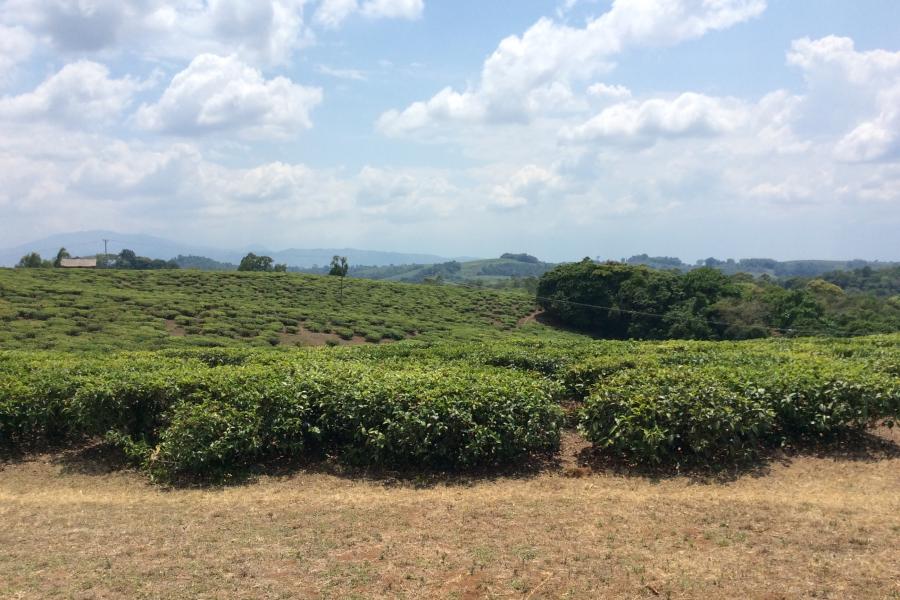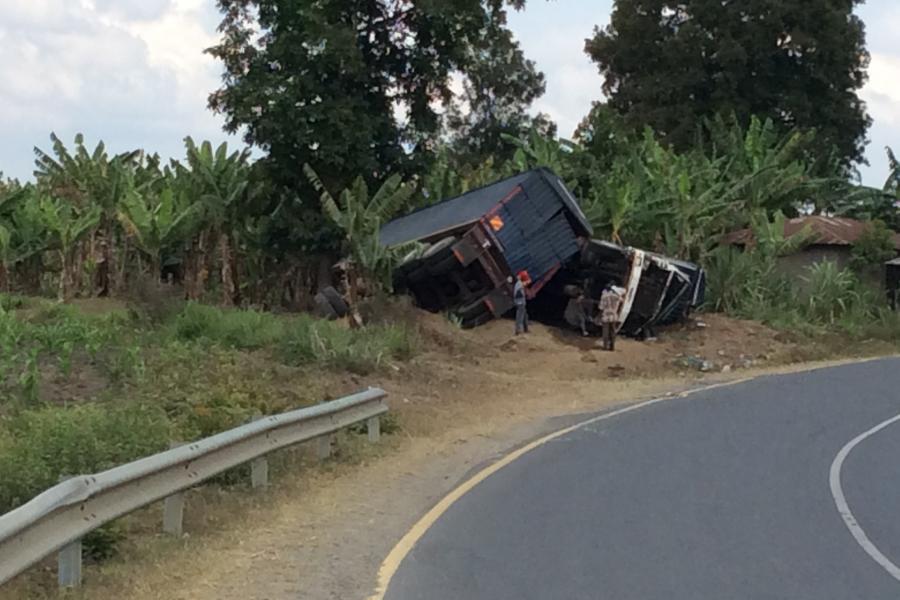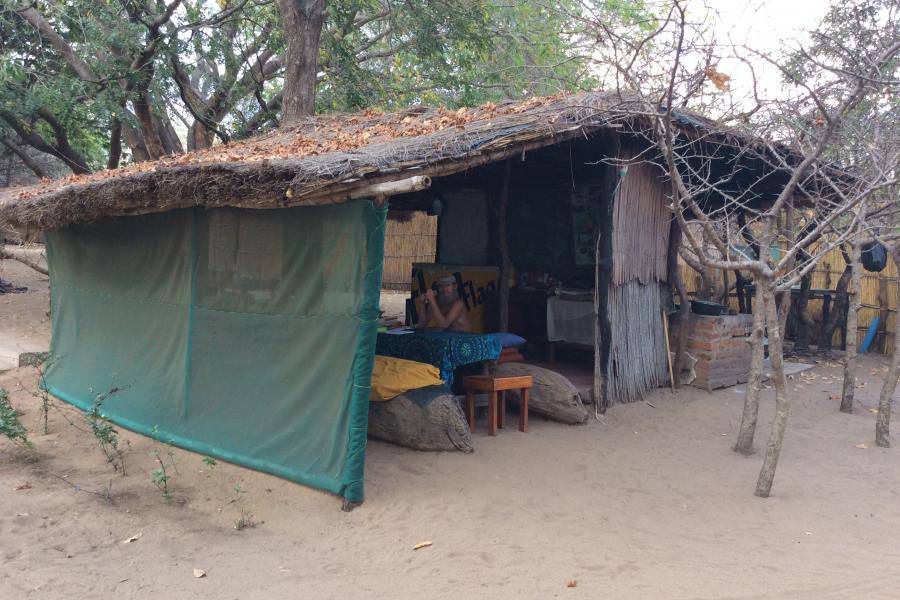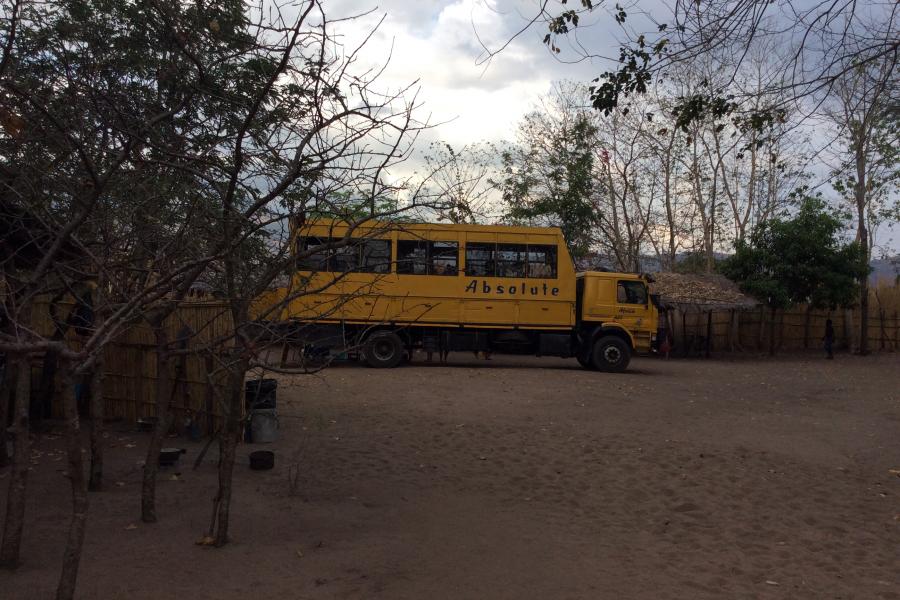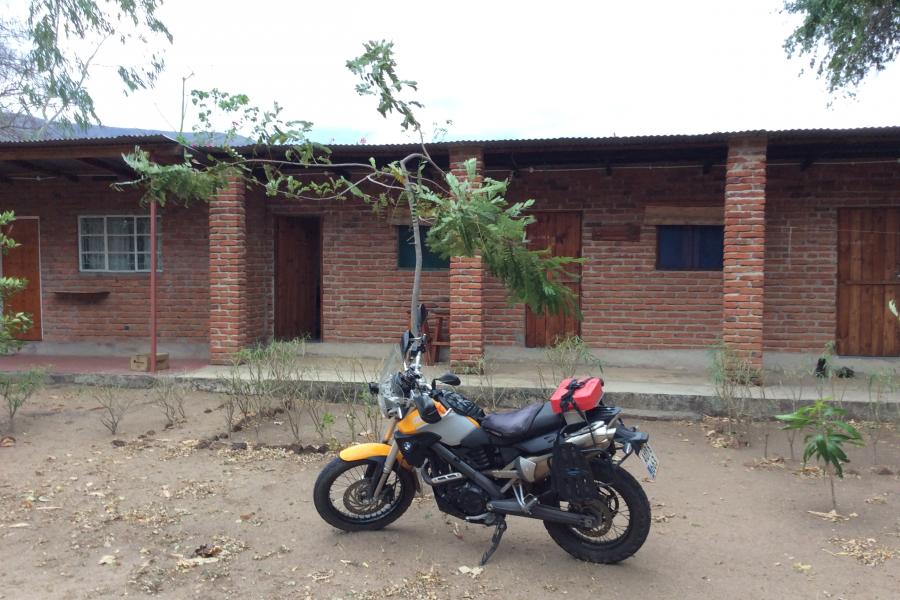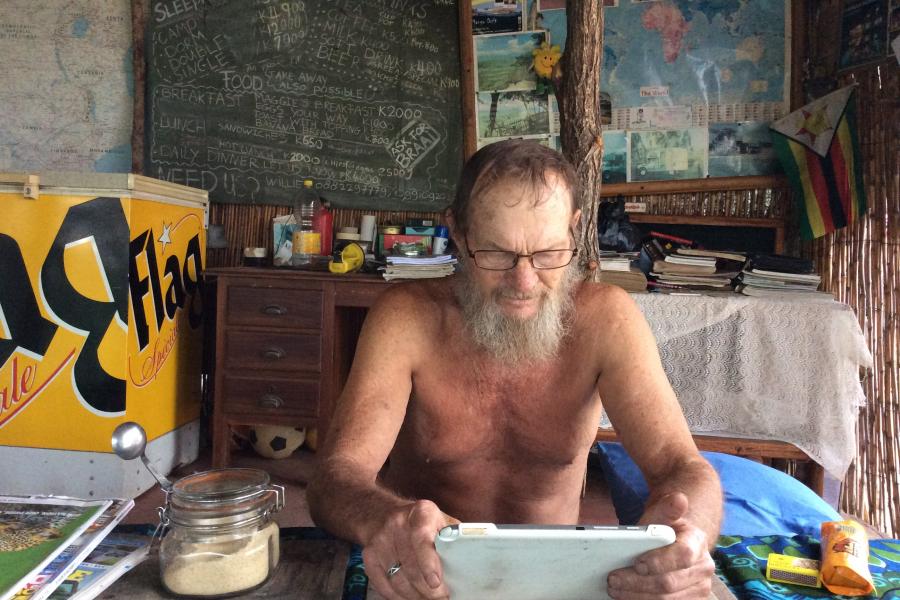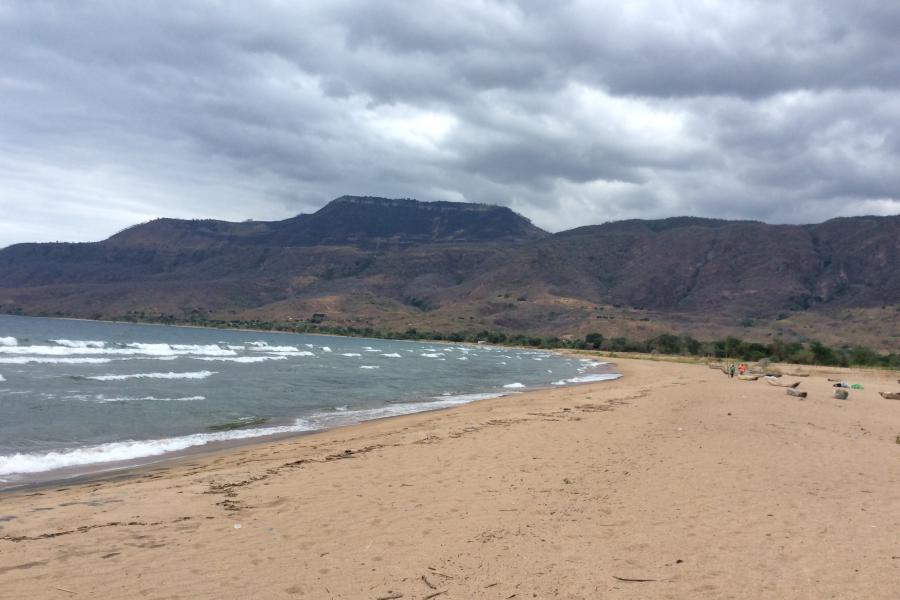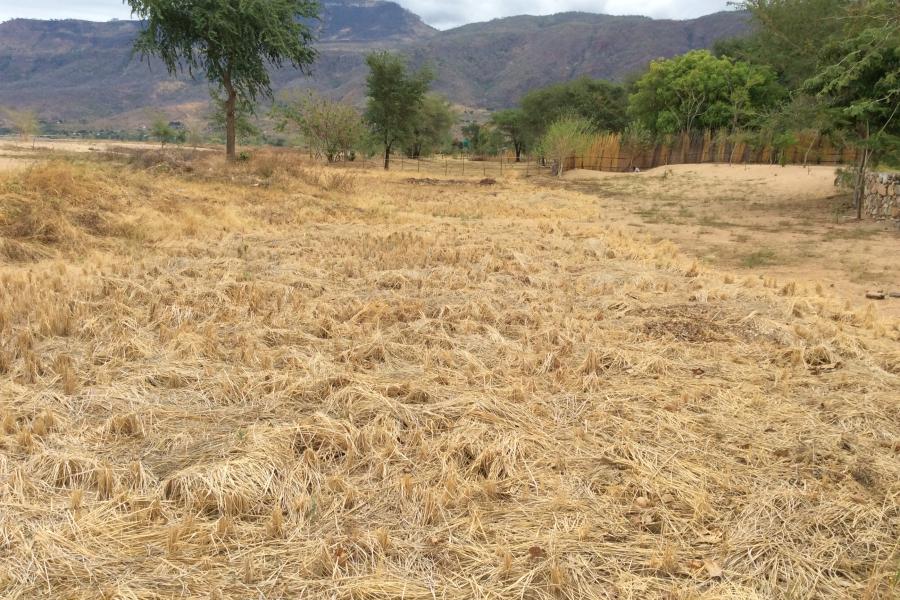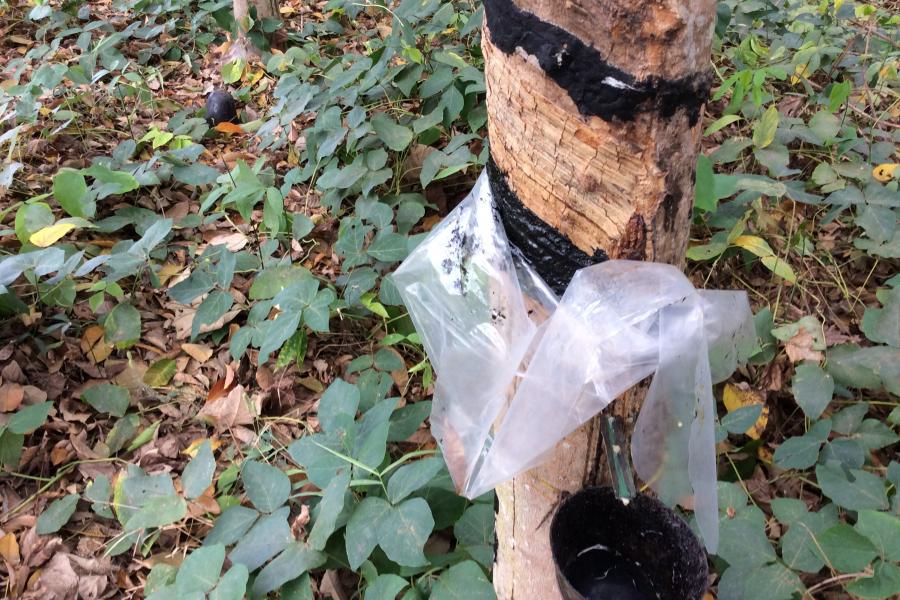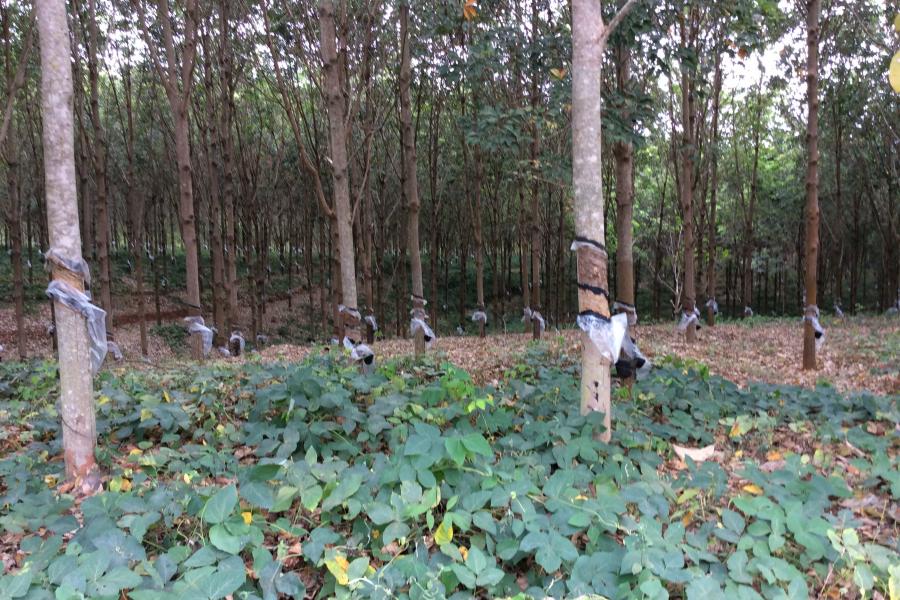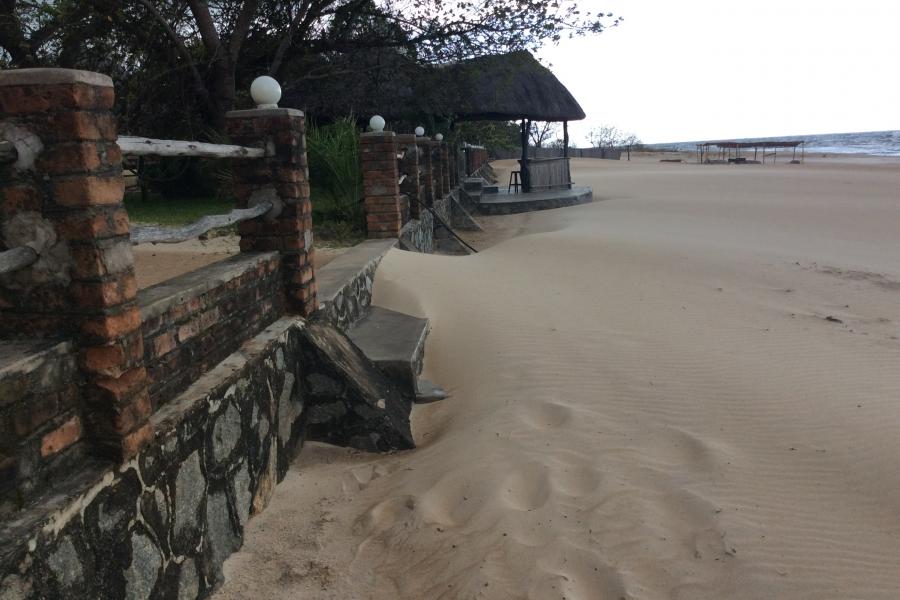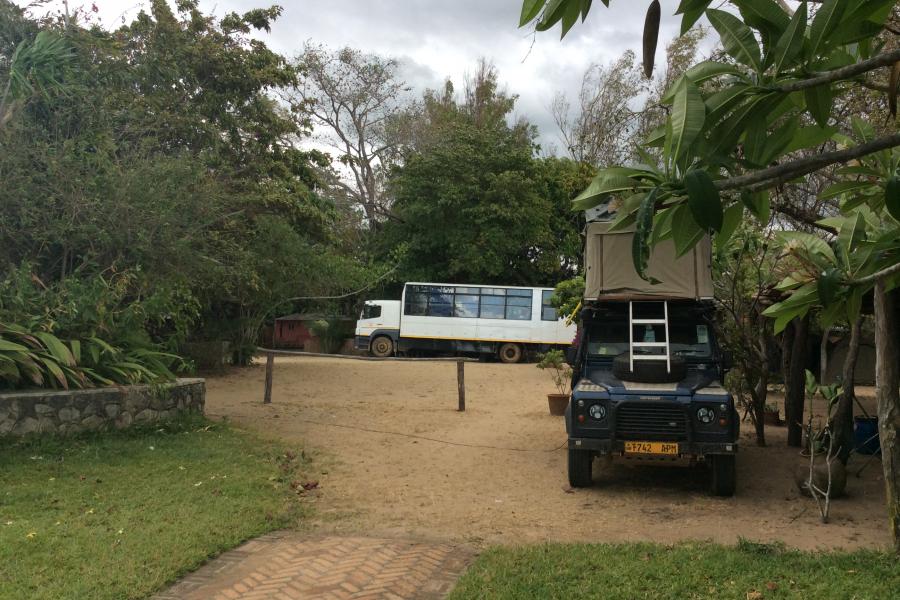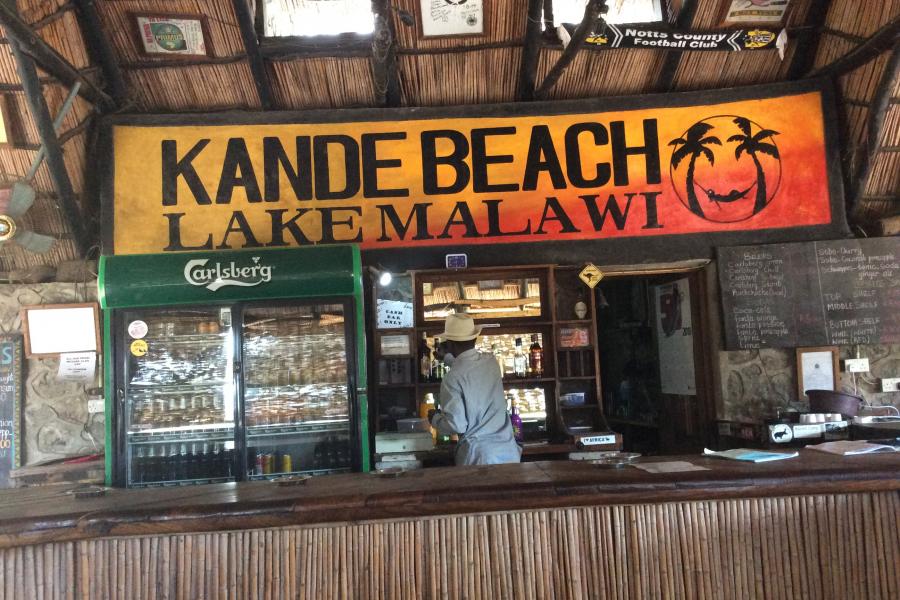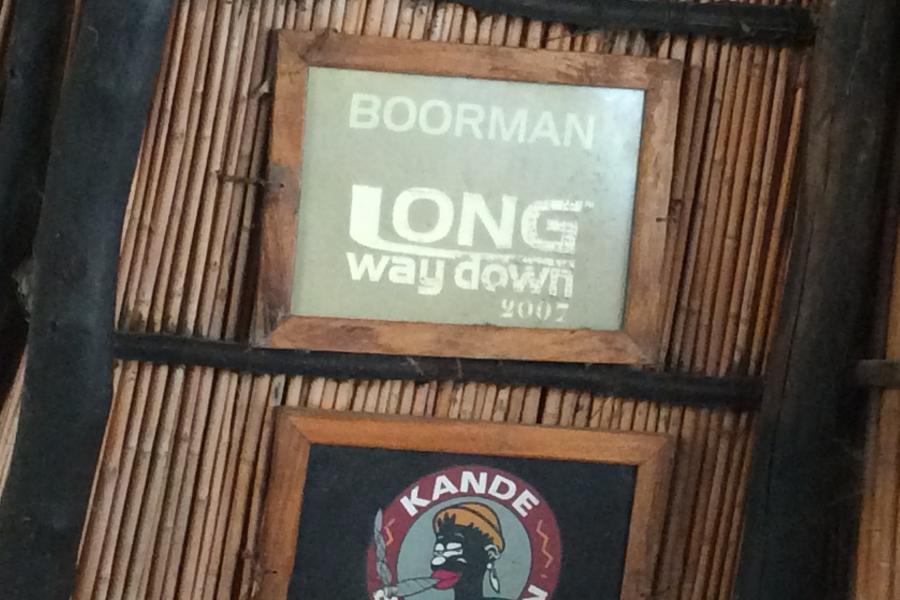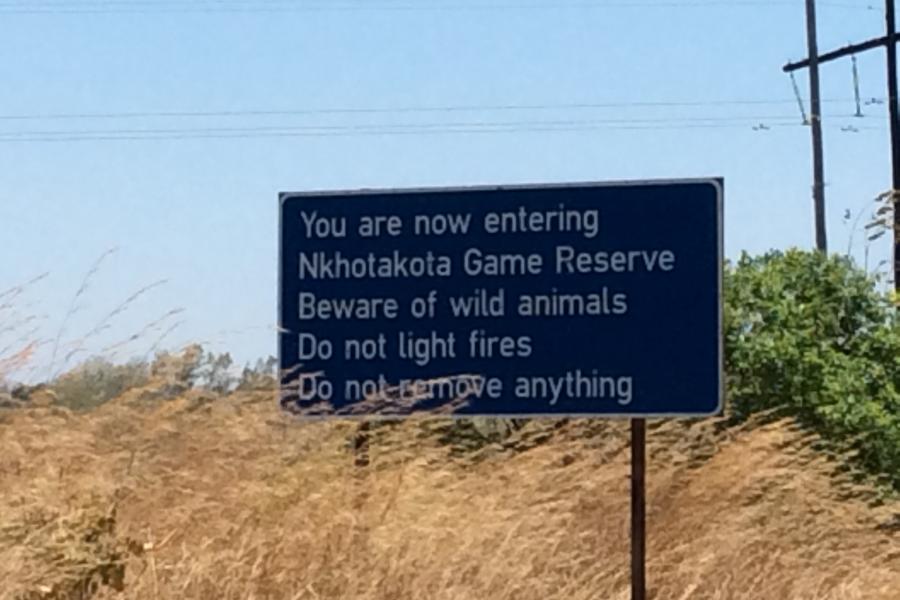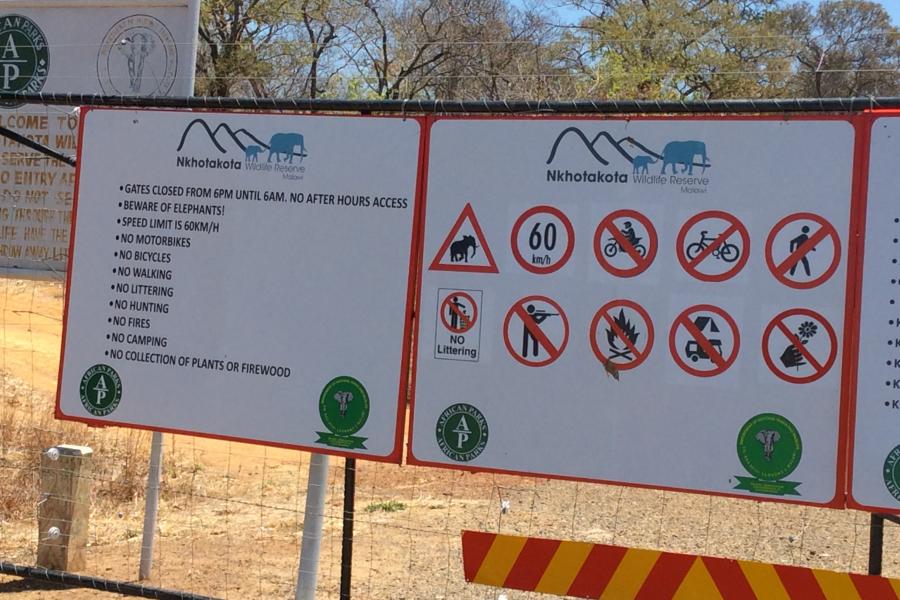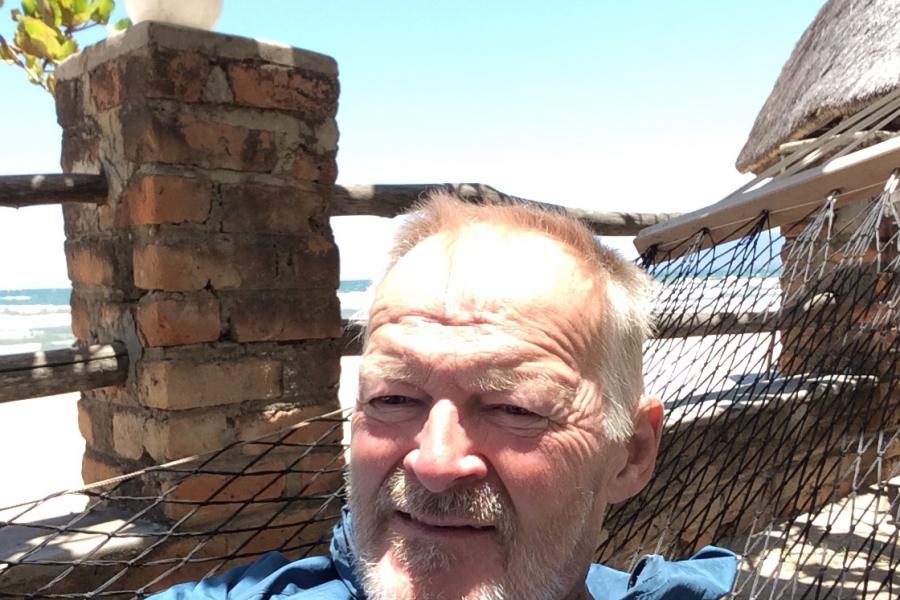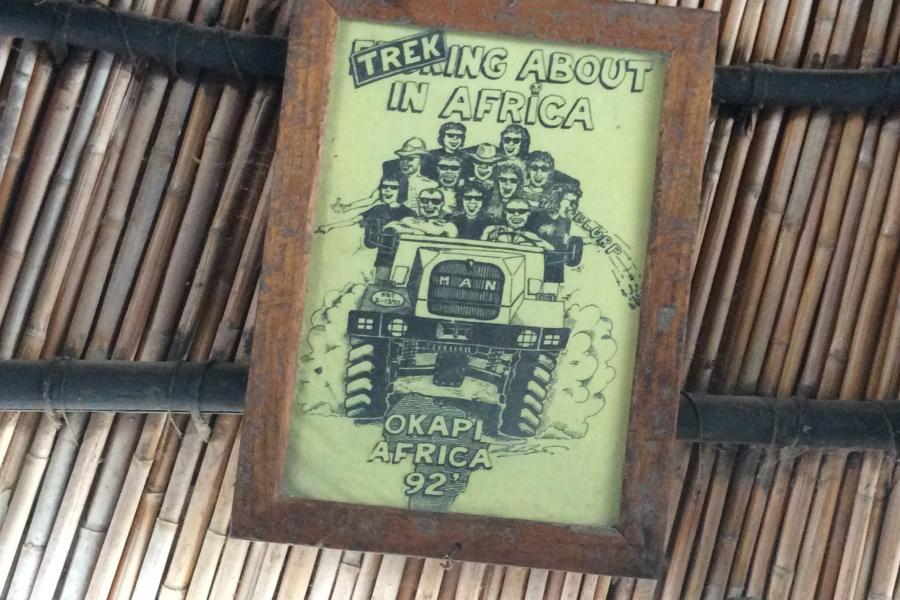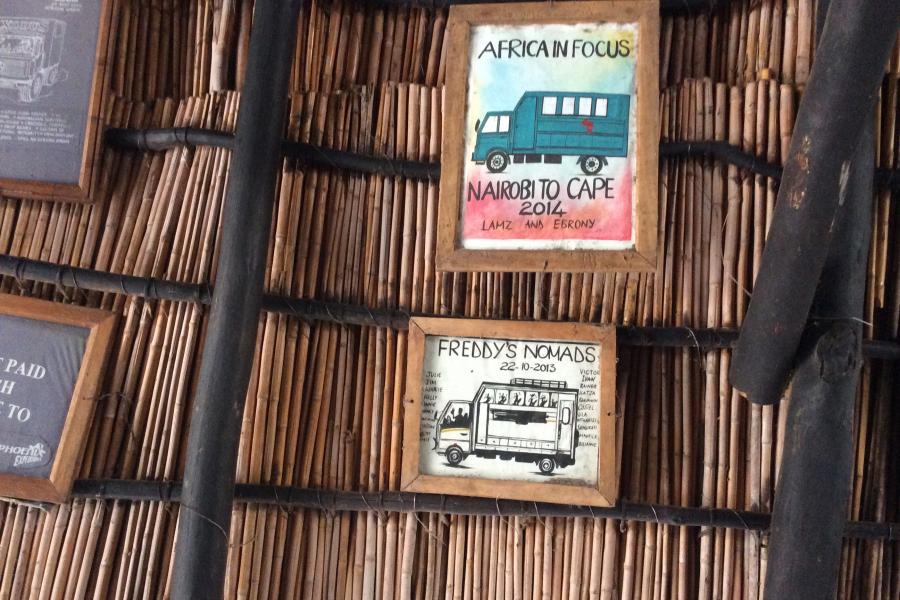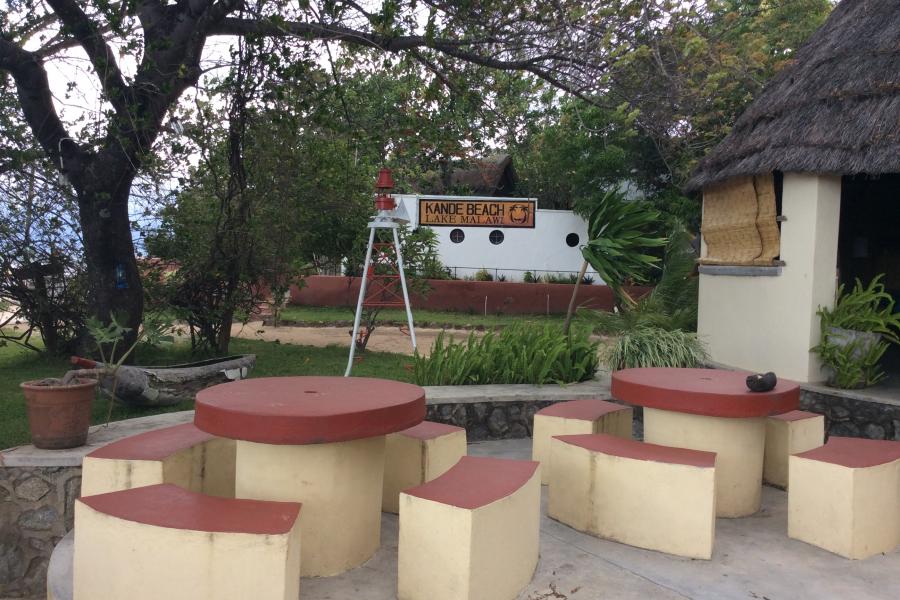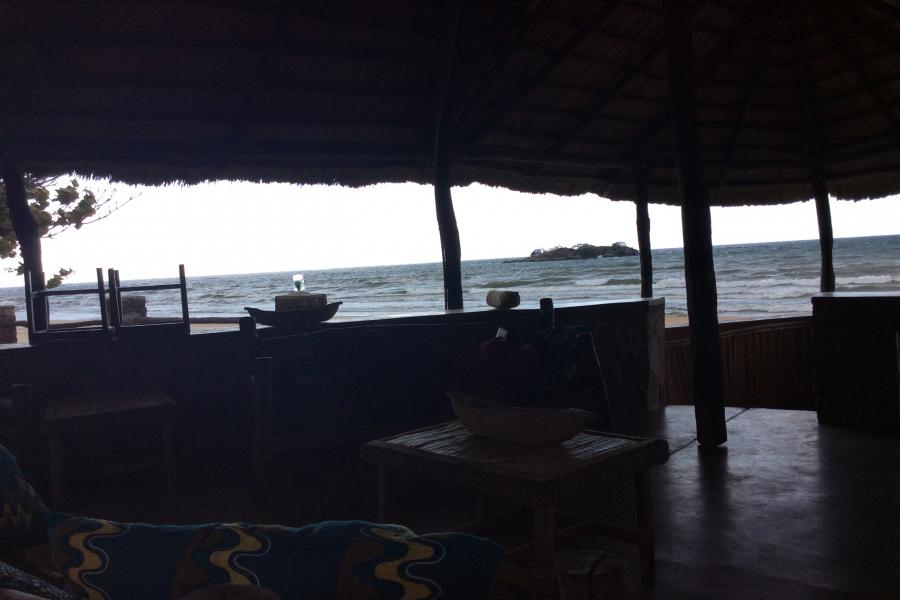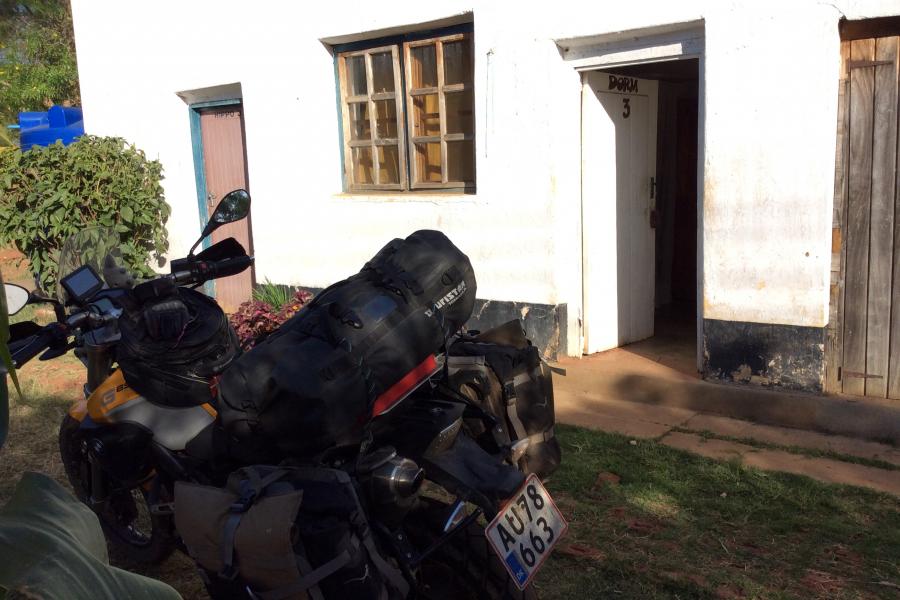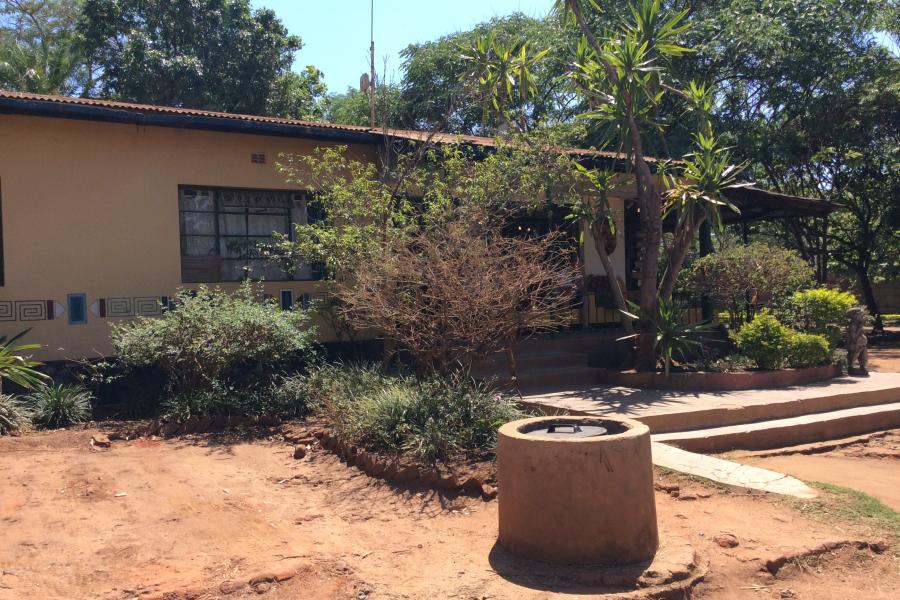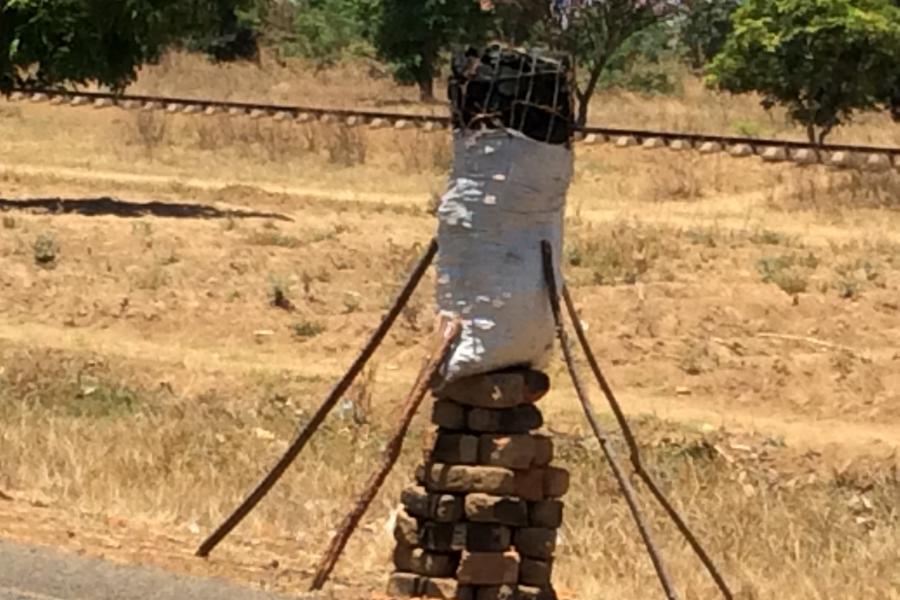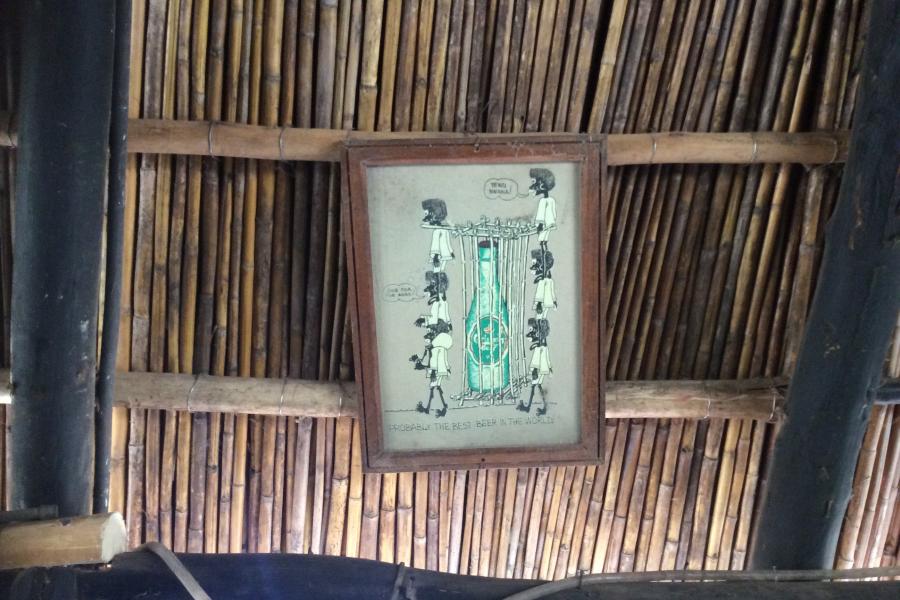Lake Malawi and Hakuna Matata Beach Camp
Country
It was a short 120 km drive from Utengule to the border crossing. Malawi is one of several African countries that has increased visa fees considerably in the past two years. The visa fee is now $ 75,00 + $ 20,00 RAF (road access fee) - payable in US$ only. The exit from Tanzania was fast and efficient, passport stamped, carnet for the bike sorted and I could drive the couple of hundred meters to Malawi customs. It took about an hour for the Malawi side to issue my visa, stamp my passport and fill in and stamp my Carnet de Passages.
Malawi is a relatively small country - about half the size of England, and a population of just under 20 million. Leaving busy, booming Tanzania the difference between the two countries is striking. Virtually no cars on the roads in Malawi, dilapidated houses and huts, and as I reach the shores of Lake Malawi shortly after the border, lots of people drying small fish on the side of the road, with little clothes on their bodies, and what they do have, worn and filthy. I later learn that Malawi is ranked the 3rd poorest country in the world, and about the same position when it comes to corruption. And yet the Malawians have a reputation of being one of the friendliest and most smiling nations on earth. While waiting for my visa at the border, I got chatting to a Malawian guy, who said to me : if you ever meet an African person who is not smiling, I can guarantee you that he is not Malawian!
Malawi is often called “the warm heart of Africa” referring to it’s friendly people. A couple of days later at Shoprite in Mzuzu a well dressed man, who had parked his beautiful Toyota 4x4 company car next to my motorcycle, came over to say hello. He worked for Escom (Electrical Supply Company of Malawi). During our conversation I pointed out to him that there were many poor people in his country. Yes, he said, but they are happy and satisfied with what they got! That was certainly not in line with what I read in the English language newspapers in the country, who are very critical of the president. At least there seems to be freedom of the press! When he climbed into his nice Toyota a bit later, I didn’t have the heart to tell him that he should do something about the slogan painted on his car : Power all Day every Day - which couldn’t be further from the truth. I later heard that the government operated Escom were forced to change it to : Towards Power all Day every Day - or face a law suit for false advertising.
Lake Malawi, a UNESCO World Heritage site, takes up more than one fifth of the country. It is 585 km long and 75 km wide, with a max. depth of just over 700 meters. The Tanzanian part is called Lake Nyasa and the Mozambique part Lago Niassa. It has the most species of any fresh water lake in the world - around a 1000. The lake has huge implications for the tourist industry in Malawi, with numerous lodges along it’s shore, and all sorts of activities on offer. The lake is reputed to have world class diving, due to it’s crystal clear waters with visibility up to 20 meters.
I had already been recommended a place along the lake, but read a few comments on the net about another place called Hakuna Matata - Kiswahili for “no problem/don’t worry be happy - and the South African owner Willy. Both the place and Willy sounded very interesting, so I decided to try it out. I am glad I did, as it turned out to be a great place. I got a dorm with 5 beds all to myself, for $ 7,00 per night. Willy is a real Afrikaans boer. 71 years old now, he purchased a 1 acre plot of land at the lake, 8 years ago, and has been improving it ever since. Still a very rustic and basic camp, it now has 4 rooms, dorm with 5 beds, campsite, ablution facilities, and a small restaurant. Willy has recently added a magnificent lapa, where a bar will soon be installed. The whole site is only about a 150 meters from the waters edge. It is not a big fancy place, but it has something no other place can deliver - Willy - who is the heart and soul of Hakuna Matata. Probably one of the most attentive proprietors I have ever encountered, spending loads of time with me and Michael, another guest who had been there for 2 weeks. We both loved listening to Willy talk about his life, while we enjoyed a sundowner under the lapa. He is a man of faith, having been a missionary in Kwazulu Natal, South Africa for 5 years. He got involved with the witch doctors there, and can tell a story or two about them. They are for real, he said. Stay far away from them, and don’t get involved at all. I asked Willy if he received a pension from South Africa. No, I won’t get anything from them at all, despite the fact I paid my taxes for years. This place is what will have to sustain me, and keep me going, he said.
Pinned to a board in his little restaurant, I noticed a couple of pictures of him and Kingsley Holgate, the world renown South African humanitarian adventurer and author of many books on Africa. I know him well, Willy said, he always stays at Hakuna Matata whenever he is in the area. I certainly was in good company.
Martha, Hakuna Matata’s Malawian cook, cleaner, “accountant” and much more, cooked some delicious meals for us. One evening South African boerewors and toast with ham, cheese and onions, and another evening chicken with Willy’s homegrown rice. Willy wanted to prove a point to those Malawians complaining that there was no land for them, and planted rice right in the sand on the beach, eventually harvesting 180 kilos of rice!
Sadly, time was running out for me at Hakuna Matata. I had been there two nights, with Willy suggesting that I should really stay one more night. Nothing I would have enjoyed more, but nine o’clock I was packed and ready to say my goodbyes to these wonderful people, Willy, Martha and Michael.
I wanted one more stay at the lake, before heading west towards the Zambian border. The Norwegian couple I met in Sudan, had suggested I spend a couple of nights at Kande Beach, south of Nkhata Bay. It was a trip of about 300 kilometers through the town of Mzuzu, known for it’s rubber plantations (see pic). Reaching Kande, after a wonderful drive through the mountains, I still had a challenging few kilometers from the main road down to the beach along a very sandy and muddy road. No problem for a 4x4, but I had my hands full keeping the X-Country upright. Finally I reached the gate to Kande Beach Resort, and was able to enter the resort. It is very popular with the overland trucks taking 20-30 people from Nairobi, Kenya through to Cape Town, and two of these purpose built trucks were there when I arrived - one from Absolute Africa and another from Intrepid.
I got a small room very close to the beach, where I would fall asleep to the sound of the waves crashing on the beach. Despite the annoying power cuts, rendering WiFi and hot showers out of the question, I had a couple of really nice relaxing days at Kande, enjoying the activity created by the many people on the two buses. I was surprised to see quite a few elderly folks on the trucks, aged 70+. I got talking to Barry and his wife from Sydney one evening at the bar. He had been retired from Exxon Oil since the age of 50, and now 75, had done his bit of travelling. They had enjoyed the trip so far, and was looking forward to travelling the Garden Route, when they reached South Africa.
Even relaxing in a hammock can get too much, so after two nights at Kande, I packed up and headed for Nkhotakota Wildlife Reserve. Recently it was in world news, when the first batch of 250 elephants out of 500, were relocated from another park to Nkhotakota. In Tanzania I had a fantastic experience driving through the Mikumi reserve, and with the main road leading through this park as well, I had high hopes for Nkhotakota. About 10 kilometers into the park, I reached a checkpoint with a guard. I could see a lot of signs on the gate - one of them picturing a motorcycle with a line over it! The guard wanted to know where I was from, and finally asked whether I would like to drive through. Yes, most certainly, I said to him. I will let you through this gate, but the problem is you have to go through another gate at the other end, where my boss is standing. I will have to call him and find out if it is OK for you to go through. He made the call, and shortly after had to tell me that his boss had declined as it was too dangerous, and sadly I would have to turn around. Petty!
I arrived in Lilongwe, Malawi’s capital, early afternoon, and drove straight to most overlanders hangout, Mabuya Overlander Camp. Checked into a 4 bed dorm, again with no one else there, and spent one night only at Mabuya, before driving the 130 kilometers to the Zambian border.
One last note on Malawi - of particular interest to Danish readers! Driving through the country you can’t help noticing all the Carlsberg signs. At most of the places I stayed, only Carlsberg was available. I later learned that Malawi was the first country - outside of Denmark - where a brewery was opened (in 1968). One day when I was getting fuel for the bike, a Malawian came and asked all sorts of questions about the bike and the engine. He then left, and shortly after came back with an opened Carlsberg beer, which he was drinking himself. He then asked if he couldn’t get me one. I politely declined, and told him I didn’t condone drinking and driving.

